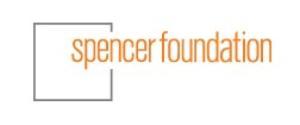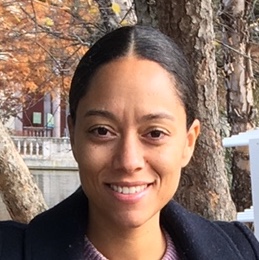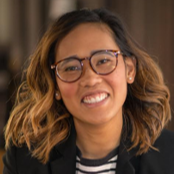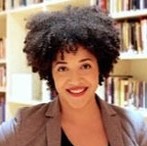About
The U.S. public education system currently serves more than 50 million students. In the last 30 years, many of the policies and rules that have shaped our educational system have gone against so much of what we know from research, the professional knowledge of educators and the intuition of parents and students themselves. These policies threaten our democracy, our economy and our ability to know and understand each other across our differences. Not only is this system stifling our students’ voices, ideas and preparation for democracy and a global economy -- but it is also bad for our increasingly diverse society because it perpetuates a system of narrow understandings that do not reflect our different histories and cultures, it rationalizes punitive disciplinary practices toward some students and not others, and it pushes us further from each other.
Children Left Behind: Time to Reimagine Education explores how our current assessment system influences curriculum, sorts and segregates students and feeds the school to prison pipeline. We tell the story of our education system from the inside-out, focusing on the voices of students, educators, and researchers. This film also highlights the innovations and cutting-edge, transformative work being done within the system for the benefit of all our children that we can learn from and expand on across the country. We travel to Revere, Massachusetts, one of six school districts participating in an experiment to develop authentic and direct gauges of student performance and Los Angeles, California to see how Ethnic Studies is making a difference in the lives of students. These portraits of possibility, along with the film’s attention to restorative justice as an alternative to traditional disciplinary practices, offer compelling counter-narratives to educational policy and practice as usual.
Children Left Behind: Time to Reimagine Education
The Research Behind the Film
As education researchers, our team has focused on certain aspects of the education system – namely, issues of student access to schools, parents’ efficacy in the school choice process, and the socio-cultural issues that affect school culture and climate- and their connections to prominent education policies related to student assessment and school accountability, curriculum and pedagogy, and school discipline. Throughout our work with schools and families, the mismatch between research and policy became increasingly obvious. Thus, a story of the research evidence needed to be told. Behind each theme in the film are mountains of research evidence we presented to Firelight Media as they worked collaboratively with us to bring our vision to life. The major takeaways from each theme are below.
Read our article in Phi Delta Kappan on our motivations and process for making this film.
The Team Behind the Film
Children Left Behind: Time to Reimagine Education is the result of a collaboration between researchers from The Public Good at Teachers College and film makers from Firelight Media.
The Public Good Research Team
Amy Stuart Wells is the Director of the Reimagining Education Summer Institute and a Professor of Sociology and Education at Teachers College, Columbia University. She is also the Director of the Center for Understanding Race and Education (CURE) and co-Director of the Public Good, a non-profit public school support organization for racially and ethnically diverse schools. In February, 2016, Wells and her colleagues published a Century Foundation report titled, How Racially Diverse Schools and Classrooms Can Benefit All Students. For the last 25 years, her research and writing has focused broadly on issues of race and education and more specifically on educational policies such as school desegregation, school choice, charter schools, and tracking and how they shape and constrain opportunities for students of color. Wells’ on-going research project, “Metro Migrations, Racial Segregation and School Boundaries,” examines urban and suburban demographic change and the role that public schools and their boundaries play in who moves where. The final report from the suburban research phase of that project, Divided We Fall: The Story of Separate and Unequal Suburban School Districts 60 years after Brown, was published in Spring 2014; related articles were published in the Washington Post Answer Sheet, The Atlantic CitiLab, and Long Island Newsday.
Leana Cabral is a Ph.D. student in the Sociology of Education program at Teachers College, Columbia University, and a research assistant at The Public Good. She is also affiliated with the Consortium for Policy Research in Education (CPRE). Her research interests include school segregation, educational inequality and the racial politics of public education. Prior to attending Teachers College, Leana worked as a consultant for a large-scale education nonprofit, the Philadelphia Education Fund, and served as the Director of the City of Philadelphia's Mayor's Office of Education's college access initiative. Prior to those positions, Leana worked in the youth development field. She holds a B.A. in Comparative Women's Studies from Spelman College.
Diana Cordova-Cobo is a Ph.D. student in the Sociology and Education program and a research associate at The Public Good and the Center for Understanding Race and Education (CURE) at Teachers College, Columbia University. Her research interests center on the relationship between housing trends and school demographic change- particularly as it relates to racial/ethnic stratification and inequality amid gentrification and segregation. She previously worked as the Senior Research and Policy Analyst at the NYU Furman Center, where she led projects on New York City’s public housing and the racial/ethnic diversity of New York City’s neighborhoods and elementary schools. She has also served as a research consultant for the New York City Department of Education and the New York Civil Liberties Union, and as a research assistant for the NYU Research Alliance. Prior to starting in the Sociology and Education program, Diana was a middle school social studies teacher in the Washington Heights neighborhood of New York City. She holds a B.A. in Political Science and Women’s Studies from the University of Florida and an M.A. in Social Studies Education from Teachers College, Columbia University.
Dianne G. Delima is an Ed.D. candidate in the Higher and Postsecondary Education program at Teachers College, Columbia University. She is also the Administrative Coordinator for the Center for Understanding Race and Education (CURE) at Teachers College and the Co-Coordinator for Reimagining Education. Her research interests focus on the teaching and learning experiences of first-generation college students of color. Her dissertation looked into these students learning experiences in diversity courses in a high-diverse public institution. Dianne received her M.A. in Language, Reading and Culture from the University of Arizona, and her B.A. in International Studies from the University of California, San Diego
Abbey Keener is a Ph.D. student in the Sociology and Education program and a research assistant with The Public Good at Teachers College, Columbia University. She has also served as a research consultant for the New York Civil Liberties Union and the New York City Department of Education and as a research specialist at Princeton University. In her work she is interested in the relationship between changing neighborhoods, educational inequities, and school-and-neighborhood-based social networks. Her current research focuses on the geographic nature of schooling in the context of school choice and uses geospatial statistical methods to explore patterns of segregation and ties between neighborhoods and schools. She holds an M.A. in Sociology from the University of North Carolina at Chapel Hill and a B.A. in Sociology and Anthropology from Wake Forest University.
Siettah Parks is Ph.D. student in Sociology and Education and a research assistant at The Public Good at Teachers College, Columbia University. Previously, she has worked in schools in New Jersey and New York City, and served as a Program Manager at an education support nonprofit. Her research interests are related to teacher education and preparation, teacher-student relationships, and the educational experiences of Black students. She holds an M.A. in Sociology and Education from Teachers College and a B.A. in Sociology from the University of Wisconsin.
Firelight Media
Stanley Nelson is among the premier documentary filmmakers working today. His feature-length films combine compelling narratives with rich and deeply researched historical detail, shining new light on both familiar and under-explored aspects of the American past. In addition to honors for his individual films, Nelson and his body of work have garnered every major award in the industry. He is a MacArthur “Genius” Fellow, and was awarded an individual Peabody Award, the 2016 Lifetime Achievement Award from the National Academy of Television Arts Sciences, and received the National Medal in the Humanities from President Barack Obama. Nelson’s latest film, Miles Davis: Birth of the Cool, the definitive look at the life and career of the iconic Miles Davis, premiered at the Sundance Film Festival in 2019. The screening marked Nelson’s tenth premiere at the prestigious festival in twenty years, the most premieres of any documentary filmmaker.
In 2000, Nelson and his wife, Marcia A. Smith, founded Firelight Media, a non-profit production company dedicated to using historical film to advance contemporary social justice causes, and to mentoring, inspiring and training a new generation of diverse young filmmakers committed to advancing underrepresented stories. Firelight received a MacArthur Award for Creative and Effective Institutions in 2016.
For over two decades, filmmaker Binns has captivated audiences wth stories that make a difference. Working across news, documentary, and feature production, Binns' poignant storytelling has touched the hearts and minds of millions on iconic television networks including CBS, ESPN, National Geographic, Al Jazeera, ESPN, BET, and more. Binns' other credits include Al Jazeera America's flagship TV newsmagazine "America Tonight"; ESPN's award-winning primetime magazine show "E:60"; National Geographic's immersive "Explorer" series; and CBS News' "60 Minutes," the oldest and most-watched TV newsmagazine program in history. Binns has also collaborated with some of the world's most renowned journalists, including Ed Bradley, Marley Safer, and Mike Wallace, among others.
Contact Us
Please send us your comments and inquiries regarding Children Left Behind: Time to Reimagine Education.
Support for the Research and Film was Generously Provided by:










